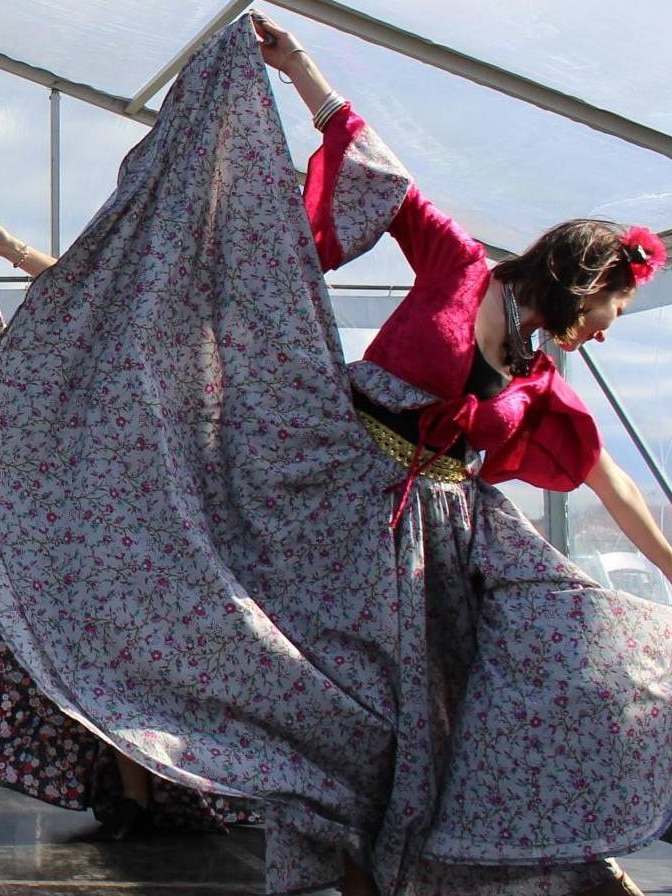A decision to cancel a Russian-themed children’s dance troupe from the line-up of an upcoming South Australian multicultural festival has prompted accusations of “discrimination”, but has been defended by the state’s multicultural affairs minister as “difficult” but “necessary”.
Key points:
- The SA government says it has told Kalinka Russian Ensemble and the Russian Women’s Association not to attend
- The minister said she had no concerns about either group
- But she said the move was necessary, given the expected attendance of Ukrainian refugees
Zoe Bettison has confirmed she asked the Kalinka Russian Ensemble, which is for all age groups but is largely composed of local young people of Russian heritage, and the Russian Women’s Association not to attend the state’s Multicultural Festival in Victoria Square/Tarntanyangga on Sunday, November 12.
The minister said she was not at all “concerned about” either group, and that she has “high regard” for both of the associations which she had “asked not to come”.
But she said her decision, which followed lobbying efforts by the state’s Ukrainian association, was out of respect for Ukrainian refugees who had fled Russia’s invasion and who would also be in attendance.
She said it also anticipated the possibility that the event would be “hijacked” by proponents of the war.
“This was a necessary decision and I really know that it wasn’t easy for them to hear,” Ms Bettison told ABC Radio Adelaide’s Stacey Lee and Nikolai Beilharz.
“I had very strong advocacy from the Ukrainian association, to ask me to make sure that it was a safe space for our refugees from Ukraine.
“Hundreds of displaced Ukrainians will be at the event and … having the Russian associations perform would be incredibly distressing for them.
“I’m also very concerned — when we’ve had previous examples, when Russian groups have performed, it gets hijacked by pro-war political activists.”
But the move has been slammed by some, including the organiser of an online petition to overturn it, who described it as “discrimination”.
“The Kalinka ensemble primarily consists of Australian-born children with Russian cultural heritage seeking to display their cultural heritage through performance,” the petition states.
“Unfortunately, the Minister [for] Multicultural Affairs of South Australia has denied us the opportunity to showcase our cultural roots.”
The Kalinka Russian Ensemble has been contacted for comment.
‘A very brutal war’
While some callers to ABC Radio Adelaide backed the SA government’s move, others said it was unnecessary.
“It just made me so sad. It’s like World War II [and Australia’s treatment of local] Japanese, ‘let’s lock them up, they’re living in Australia’,” one caller said.
“I know two Russian families, one of them — both of their sons are in the defence force for Australia. They’ve got nowt to do with what’s happening.
“Just because you’re a Russian here, it doesn’t mean you’re a baddie.”
But another caller, who said he had migrated to Adelaide from Russia several years ago after leaving Moscow at the age of 16, agreed with those who thought the cancellation was “an appropriate decision”.
On Friday, the Association of Ukrainians in South Australia’s president Frank Fursenko said his organisation had called on the government to cancel the Russian cultural groups’ attendance out of concern for the many Ukrainians who would be in the audience.
“We’re not calling for [the groups] to be disbanded, we’re simply saying that they’ll be performing in a festival where the Ukrainian groups will be performing and the Ukrainian groups of course will have their friends and fans, I suppose, there to witness it,” Mr Fursenko said.
“Amongst them will be quite a few displaced Ukrainians who have fled the war and are very much traumatised by what they’ve experienced and certainly what they’ve seen.
“The entire Ukrainian diaspora throughout the world has been traumatised by what they’ve seen on TV for the last 18 months.
“There’s a very brutal war going on.”
Recent developments in that conflict include, according to Ukrainian officials, the deaths of at least 51 people in a Russian attack on a village in the north-east of Ukraine.
Ms Bettison was asked whether it was hypocritical to deny Russian cultural groups a performance space because of the war in Ukraine at the same time as allowing Chinese community representation amid ongoing repression of China’s Uyghur population.
“There are many global conflicts in the world, I understand that, but there wasn’t an invasion,” she responded.
“There will be performances from Chinese communities, the Hong Kong Association will also have a stall.”
Earlier this year, SA Premier Peter Malinauskas said he strongly considered pulling state government funding from Adelaide Writers’ Week amid controversy over an author critical of Ukraine’s president Volodymyr Zelenskyy, but decided against such a move because it would have been a step “down a path to Putin’s Russia”.




